These simple pleasures could vanish—and sooner than you think.

You probably don’t even notice how many little things make your day easier, more enjoyable, and comfortable—until they disappear. That’s the thing about daily comforts: they’re so woven into your routine that you assume they’ll always be there. But climate change is already rewriting that assumption, and the deeper it digs in, the more those small pleasures start slipping away. It’s not just about polar bears or distant disasters anymore—it’s personal. It’s creeping into your home, your habits, and the way you live your life every single day.
If you’ve been thinking climate change is only about big storms and rising sea levels, it’s time for a reality check. What’s really at stake hits closer to home than most people realize. And once it’s gone, you’ll wish you’d appreciated it more. Because the comforts you count on now might not make it through what’s coming next.
1. You won’t be able to count on cool air at the push of a button anymore.

Most of us take air conditioning for granted—just hit a switch, and instant relief. But when temperatures skyrocket and power grids get overloaded, that luxury becomes a gamble. Brownouts and blackouts are already becoming more common during heatwaves, and it’s only going to get worse, warn experts at Climate Central. Even if the power stays on, expect restrictions, higher costs, or limits on when you can use energy-hungry appliances. And if you live in an older home or on a fixed income, staying cool could become an expensive challenge.
Climate change doesn’t just bring heat; it brings an unstable energy future. That means sweating through nights, planning your day around utility warnings, and worrying about elderly family members who can’t handle the heat. The idea of “just turn on the A/C” might become something you remember more than rely on.
2. Fresh produce won’t be a grocery store staple—it’ll be a luxury.

The simple joy of biting into a crisp apple or tossing fresh spinach into your salad could become a whole lot harder to come by. According to the U.S. Environmental Protections Agency, rising temperatures, prolonged droughts, and extreme weather are already hammering farms. That means fewer crops, higher prices, and more empty shelves. If you’re used to year-round strawberries or that perfectly ripe avocado, brace yourself—those might turn into rare treats instead of weekly basics. Farmers are struggling to adapt, but there’s only so much they can do when the weather refuses to cooperate.
You might find yourself shifting to canned goods or frozen options, not because you want to, but because that’s what’s available. Food deserts could spread, not just in poor areas, but in places that used to be reliably stocked. Healthy eating might start to feel like a privilege, not a choice.
3. Clean, drinkable water might no longer flow freely from your tap.
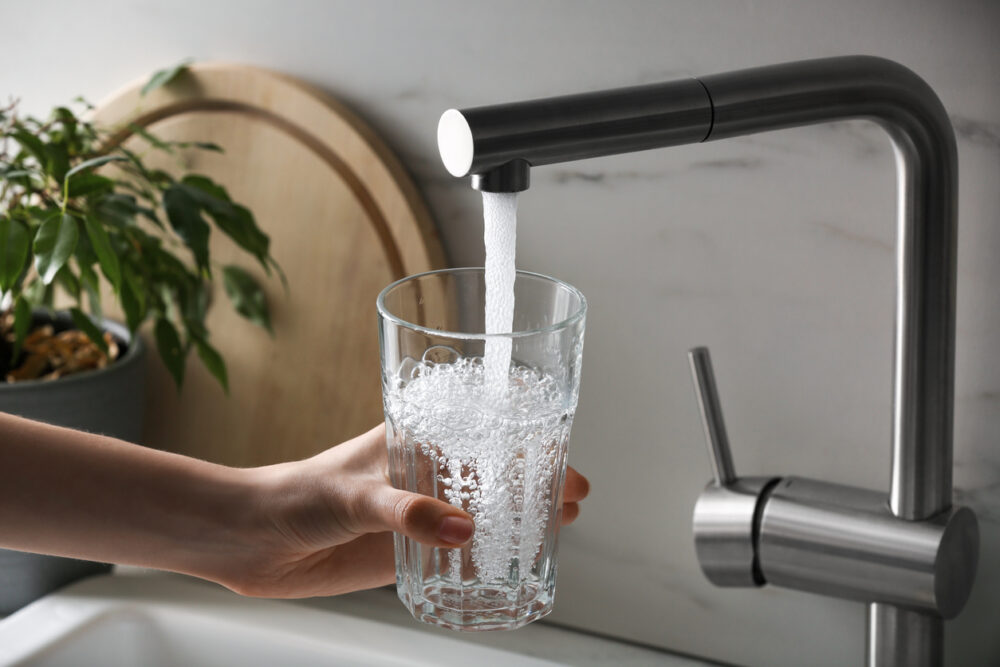
Turning on the faucet and trusting what comes out is something many never question. But climate change is throwing that certainty out the window. Droughts are shrinking reservoirs, pollution is contaminating watersheds, and outdated infrastructure can’t keep up. Cities across the globe are already experiencing “Day Zero” countdowns—the day they run out of usable water, says Emanuel Gutman Gates in an article for Tappwater. What used to be unlimited might suddenly be rationed, regulated, or downright unavailable for stretches of time. And bottled water? That’ll likely skyrocket in price—or disappear from shelves when panic buying kicks in.
Imagine having to boil water every day just to make coffee or brush your teeth. Clean water, something you’ve relied on your whole life, could become something you have to plan for, store, and fight to keep. It’s not just about thirst—it’s about sanitation, cooking, health, and everyday life getting upended.
4. Your peaceful morning coffee routine could become a struggle.

That warm, comforting cup of coffee you sip while waking up? Climate change has its sights on that too. Coffee plants are notoriously sensitive to temperature and rainfall changes, and the regions that grow the best beans are being hit hard. Crops are failing, diseases are spreading, and farmers are finding it harder to keep up. This means smaller harvests and skyrocketing prices. You might find yourself shelling out way more for a smaller bag—or being forced to settle for bitter, low-quality brews.
That relaxing morning ritual could start feeling like a luxury, or worse, a stress point. If you love a specific blend or brand, don’t be surprised if it vanishes entirely. Something as simple and soothing as a cup of coffee might become one more thing you miss about “how it used to be.”
5. Grocery stores won’t always be fully stocked like you’re used to.
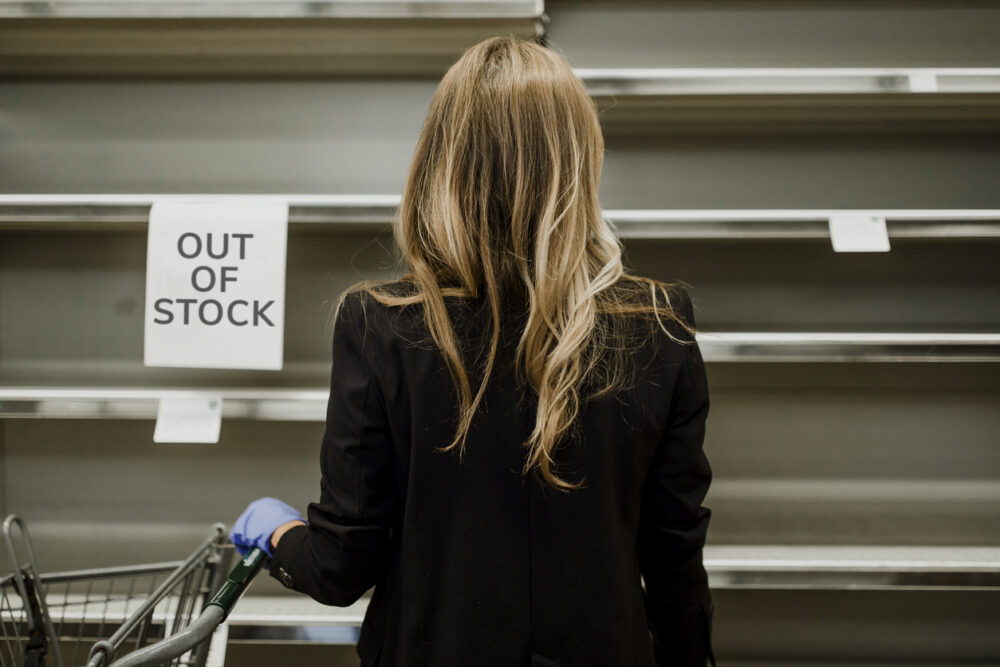
Walking into a store and seeing shelves full of choices—from pasta shapes to dairy alternatives—feels normal now. But supply chains are cracking under climate pressure. Floods, fires, and hurricanes can wipe out farmland, destroy roads, and shut down distribution hubs for days—or longer. A single storm in one state can disrupt shipments across the country. And those perfectly timed deliveries that stores rely on? They’re incredibly vulnerable to even slight delays.
You may start seeing gaps in familiar aisles, higher prices on basics, and fewer options overall. Planning meals might become a game of “what’s available,” not “what sounds good.” If you remember early pandemic shortages, that could be a regular reality. Climate change is making abundance unreliable—and scarcity something we all may have to get used to.
6. Long, hot showers could be frowned upon—or even banned.
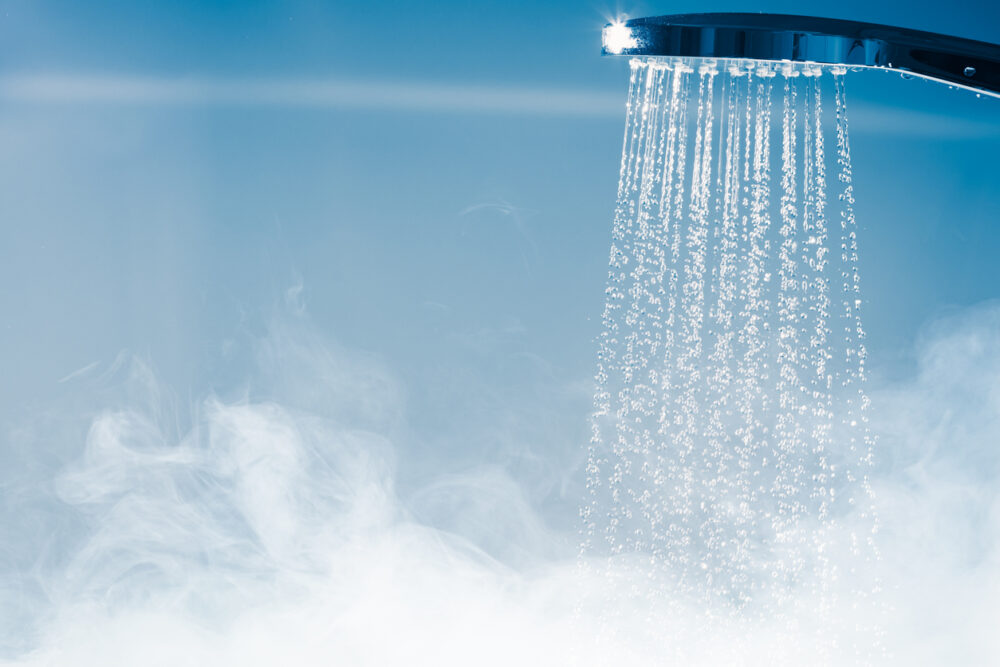
There’s something incredibly soothing about stepping into a hot shower and just letting the water run. But in a climate-stressed future, long showers may feel selfish—or illegal. Water restrictions are already in place in parts of the world, and more regions will follow suit.
If droughts persist and infrastructure can’t keep up, you might have to track your water use down to the minute. Government mandates, rising utility prices, or plain social pressure might limit your lather time. It won’t just be about personal preference—it’ll be about responsibility. That relaxing rinse you look forward to might turn into a two-minute scrub session with guilt riding shotgun. And if water is being trucked into your town? You may not even have the option.
7. Endless electricity for your gadgets could be a thing of the past.
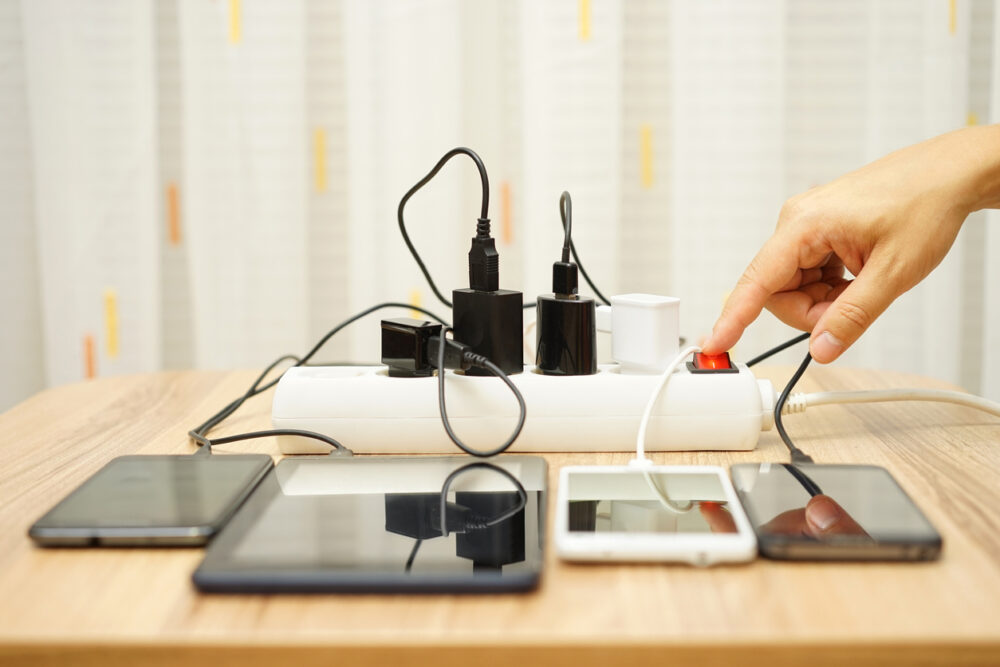
We live in a world that runs on chargers—phones, tablets, laptops, smart watches. You’re probably using one of them right now. But all that convenience assumes there’s a steady supply of electricity, something climate change puts at serious risk. With wildfires damaging power lines, heatwaves overloading grids, and storms knocking out infrastructure, outages could become the norm. Even when power’s on, it may be rationed or priced sky-high.
You might find yourself planning when to charge your devices, not just doing it whenever you feel like it. Want to stream a movie, run the dishwasher, and charge your phone all at once? That could turn into a balancing act. And if you work remotely or rely on tech for daily tasks, this shift could be more than just inconvenient—it could be a serious disruption.
8. Your favorite seasonal activities might disappear—or feel dangerous.
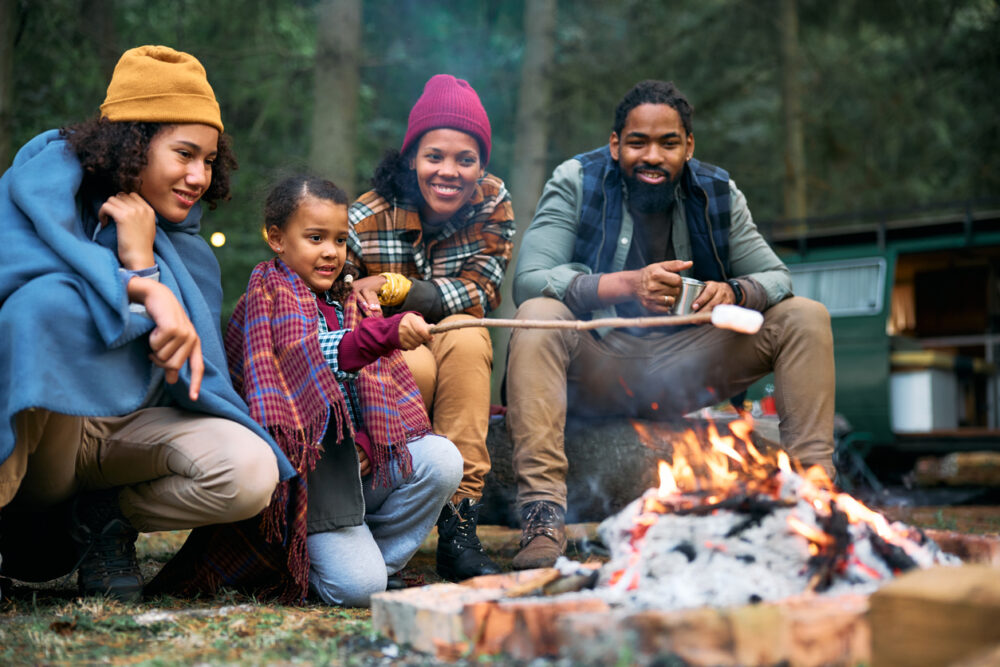
That annual camping trip, summer hike, or even just a walk in the park could be at risk. Wildfires, extreme heat, and unpredictable weather are transforming the great outdoors into a gamble. What used to be refreshing and fun might now come with warnings or outright closures. Breathing smoke-filled air, avoiding tick-infested trails, or canceling beach days due to dangerous algae blooms could become normal.
Even fall foliage trips could be a bust if rising temps throw off nature’s rhythms. Outdoor fun won’t vanish entirely, but it could become harder to plan—and way more stressful. Instead of checking the forecast, you might have to monitor air quality alerts or fire danger levels. Your favorite pastimes could shift from relaxing to risky in the blink of an eye.
9. Cheap and easy travel could be out of reach for good.

Weekend getaways, budget flights, and spontaneous road trips might soon feel like relics from another time. Rising fuel costs, climate-related travel disruptions, and public pressure to limit emissions are already reshaping how we move. Airlines may reduce routes or hike prices. Roads could be washed out, overheated, or closed due to weather events.
If carbon taxes become widespread, travel may simply become unaffordable for many. That carefree feeling of just hopping in the car or booking a last-minute deal might fade away. Travel could turn into something you plan months in advance and save up for—if it’s even possible at all. Exploring the world won’t stop, but it won’t be as easy, accessible, or frequent as it is today.
10. Outdoor dining and backyard barbecues could become unbearable.
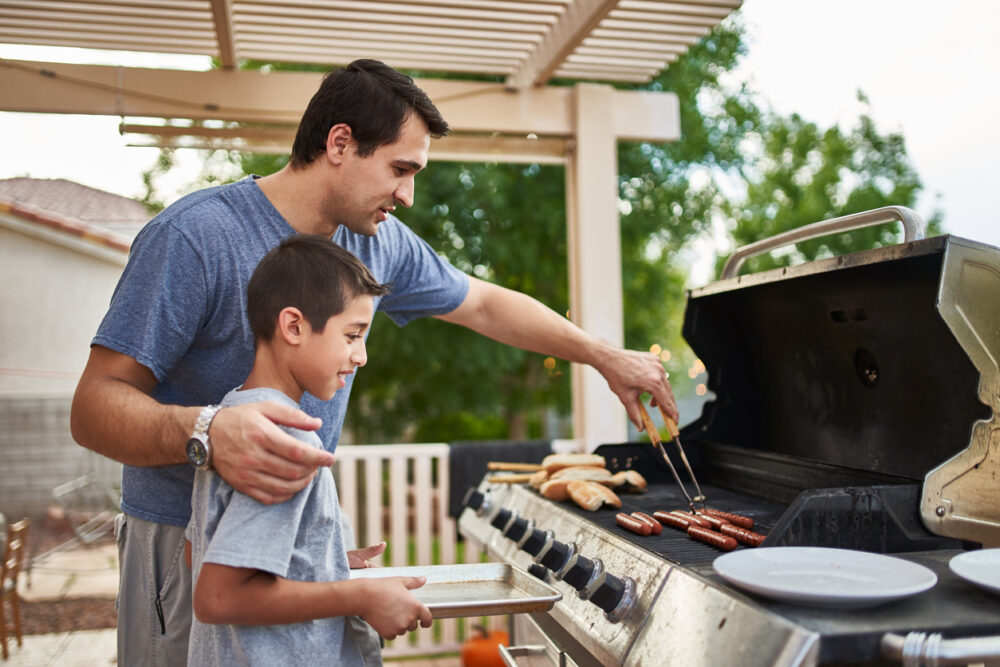
Eating outside used to be a highlight of spring and summer—until extreme heat, smoky air, and relentless bugs crashed the party. Climate change is turning mild evenings into sweltering, sticky, or even hazardous events. Air quality issues from wildfires or pollution can make being outside risky. Mosquitoes are thriving longer and in more places thanks to warming temps, and they’re bringing diseases with them.
Even a simple backyard dinner could be cut short by sudden downpours or unbearable humidity. If outdoor gatherings become uncomfortable or unsafe, we’ll lose one of our favorite ways to connect with friends and family. That “let’s eat outside tonight” spontaneity might give way to closed windows, filtered air, and canceled plans.
11. Comfortable sleep might be harder to come by every night.
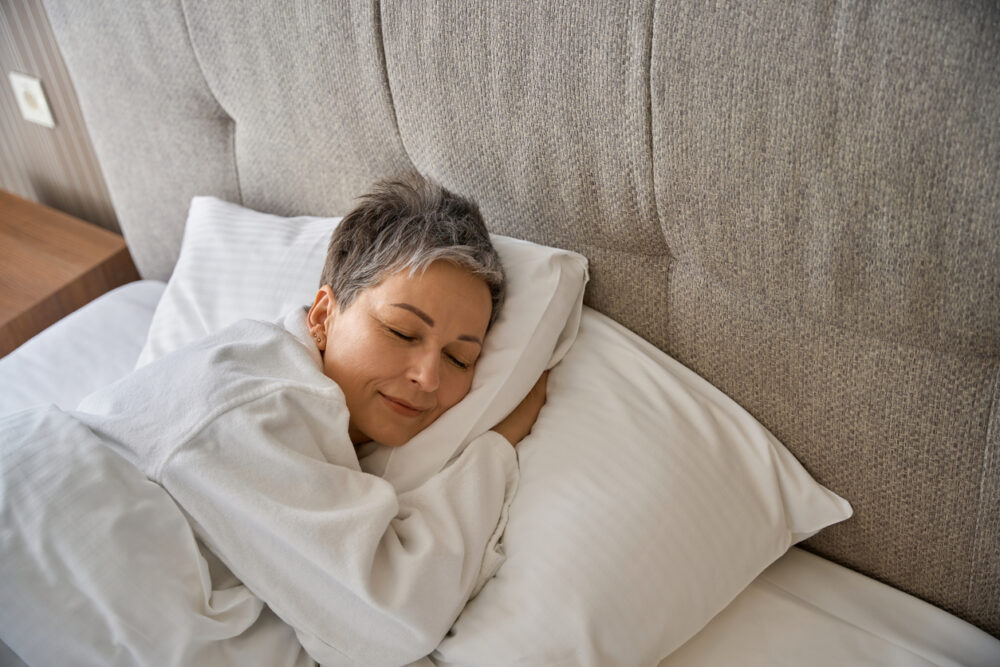
A good night’s sleep depends on a cool, quiet, and peaceful environment—something that’s getting harder to find. If your area experiences more heatwaves and rolling blackouts, sleeping in a warm, stuffy room could become the norm. Even with fans or A/C, skyrocketing utility costs may make nighttime comfort unaffordable. Noise from extreme weather, emergency alerts, or disrupted neighborhoods can also interfere with rest.
Let’s not forget the anxiety that creeps in when your world feels unstable—climate-related stress can keep your brain buzzing long after the lights go out. Chronic poor sleep doesn’t just make you groggy; it affects your mood, health, and ability to cope. Rest, once automatic, might become something you have to actively fight for.
12. Reliable internet access may no longer be a given.

It’s easy to forget that your Wi-Fi depends on infrastructure—cables, towers, electricity—that climate change is putting under pressure. Floods, fires, and windstorms can knock out connectivity for days or even weeks. Rural areas and small towns may be especially vulnerable as providers hesitate to rebuild in high-risk zones.
Even in big cities, service could be slower, less stable, or more expensive. As more people work from home or rely on telehealth and streaming to stay connected, this shift hits hard. You might find yourself scrambling for a signal, dealing with dropped calls, or losing access during emergencies when you need it most. What used to be a quiet tap away could become frustratingly unpredictable.
13. That feeling of safety in your own neighborhood could vanish.
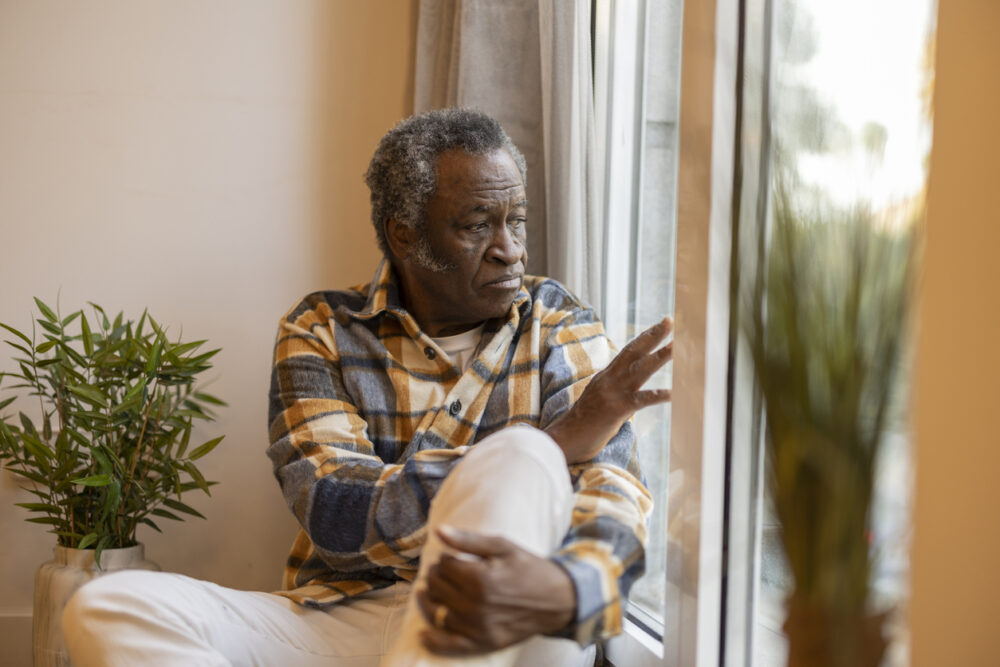
One of the quietest comforts you enjoy every day is simply feeling safe where you live. But rising sea levels, wildfires, and flash floods are displacing people and turning once-stable communities into disaster zones. Insurance companies are pulling out, home values are dropping, and recovery takes longer than ever. You might worry about evacuation orders, rebuilding costs, or whether your house can even withstand what’s coming next.
And if others are moving into your area after fleeing their own, competition for resources can create new tensions. That peaceful, settled feeling could be replaced by uncertainty, stress, and a constant sense of being on edge. Home should feel like a sanctuary—but in a climate-compromised world, that might be the first comfort to slip away.